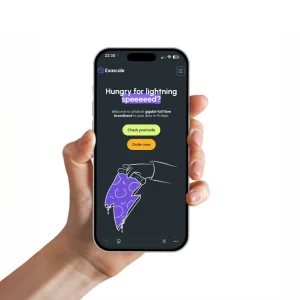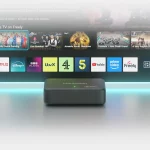Sponsored Links
European Regulators Warn ISPs to Make Traffic Restrictions Clear and Transparent
Posted: 07th Oct, 2011 By: MarkJ
 The Body of European Regulators of Electronic Communications (BEREC), which gives opinions on how the EU telecoms market should function and is composed of the heads from 27 national regulators (e.g. Ofcom in the UK), has released a new set of DRAFT guidelines that calls upon broadband ISPs to be clear with consumers about any internet access restrictions that could threaten Net Neutrality (i.e. the principal of treating all internet traffic as equal).
The Body of European Regulators of Electronic Communications (BEREC), which gives opinions on how the EU telecoms market should function and is composed of the heads from 27 national regulators (e.g. Ofcom in the UK), has released a new set of DRAFT guidelines that calls upon broadband ISPs to be clear with consumers about any internet access restrictions that could threaten Net Neutrality (i.e. the principal of treating all internet traffic as equal).The 'DRAFT Guidelines on Net Neutrality and Transparency' (PDF) have been release for public consultation and stakeholders are invited to respond by 2nd November 2011. Crucially BEREC recognises that "transparency alone is probably not sufficient to achieve net neutrality" and have made a series of recommendations to support that.
BEREC Guidelines Statement
First of all, we believe that a fully effective transparency policy should fulfil all of the following characteristics: accessibility, understandabilty, meaningfulness, comparability and accuracy. These characteristics are mostly interlinked and will need to be fulfilled while observing the principle of proportionality.
We also set out that end users must be able to make informed choices throughout the different stages of a commercial relationship, i.e. before signing the contract, at the point of sale and after signing the contract. The information needed differs depending on these different stages and will need to be generic one time and individual at another stage.
First of all, we believe that a fully effective transparency policy should fulfil all of the following characteristics: accessibility, understandabilty, meaningfulness, comparability and accuracy. These characteristics are mostly interlinked and will need to be fulfilled while observing the principle of proportionality.
We also set out that end users must be able to make informed choices throughout the different stages of a commercial relationship, i.e. before signing the contract, at the point of sale and after signing the contract. The information needed differs depending on these different stages and will need to be generic one time and individual at another stage.
The Guidelines set out:The new guidelines appear to go further than recent commitments to an "open internet" by the UK government and European Commission (EC), both of which have somewhat casually called for ISPs to be more transparent with their limits and to ensure that consumers still have access to all "legal content [and] service[s]" (here and here).
• the type of information that should be provided - the scope of the service (e.g. typical speeds), general limitations (e.g. usage caps), and specific limitations (e.g. traffic management practices)
• which bodies should provide information – as well as the Framework requirements on ISPs, various third parties provide an important complementary source of information.
• the importance of comparability – for which common frames of references and users involvement are needed
On top of that the Broadband Stakeholders Group (BSG) has been busy working with fixed line UK ISPs to pilot a new voluntary code of practice on Traffic Management transparency (here). However this is still a far from perfect solution and one that targets only a handful of big providers.
As ever the reason for the existence of such guidelines is to hinder any ISP that attempts to abuse their position as an internet gatekeeper, such as by unfairly blocking or restricting access to legitimate services/content for a dubious financial gain (e.g. charging Skype / Facebook / Google etc. for access to customers on its network - those that don't pay could be blocked or restricted to death).
It should be remembered that most ISPs, at least for now, employ Traffic Management / Shaping as a perfectly acceptable means to balance the performance of their networks. This allows the majority of customers to avoid being unfairly affected by a minority of heavy users.
Some ISPs would like to go a lot further but so far most content providers have not been willing to play ball (they have already paid a bill for their bandwidth) and internet providers are rightly nervous about incurring consumer wrath by unfairly restricting access to popular content.
Search ISP News
Search ISP Listings
Search ISP Reviews
Latest UK ISP News








Cheap BIG ISPs for 100Mbps+
150,000+ Customers | View More ISPs
Cheapest ISPs for 100Mbps+
Modest Availability | View More ISPs
Latest UK ISP News
Helpful ISP Guides and Tips
Sponsored Links
The Top 15 Category Tags
- FTTP (6851)
- BT (3900)
- Politics (3096)
- Business (2792)
- Openreach (2680)
- Building Digital UK (2523)
- Mobile Broadband (2498)
- FTTC (2148)
- Statistics (2145)
- 4G (2113)
- Virgin Media (2040)
- Ofcom Regulation (1790)
- 5G (1755)
- Fibre Optic (1610)
- Wireless Internet (1605)
Sponsored
Copyright © 1999 to Present - ISPreview.co.uk - All Rights Reserved - Terms , Privacy and Cookie Policy , Links , Website Rules































